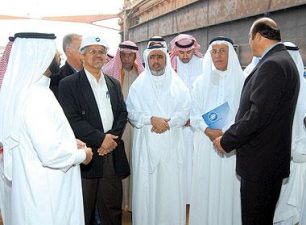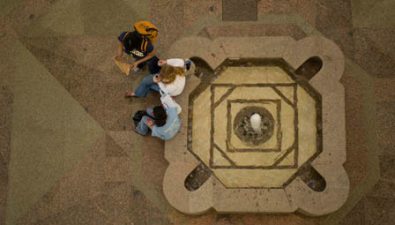A report published Sunday by the Israeli human rights group B’tselem, titled, “Foul Play: Neglect of Wastweater Treatment in the West Bank” found untreated wastewater to be a major source of pollution in the West Bank.
91 million cubic meters (mcm) of wastewater is produced each year in Israeli settlements, parts of Jerusalem, and Palestinian communities, says the report (for perspective: this amount is the equivalent of 36,400 Olympic-sized pools). The majority of this sewage goes untreated, dishcarging directly into the environment, causing severe health hazards and posing a major pollution risk to the Mountain Aquifer, a key water resource for both Israelis and Palestinians.
B’tselem claims that out of 121 recognized Israeli settlements in the West Bank, not including those in East Jerusalem, only 81 are connected to wastewater treatment facilities. Many of these facilities are outdated and overburdened, meaning they are insufficient for treating the 17.5 million mcm of wastewaters these communities produce annually. This number does not include the unrecognized settlements, which are usually unconnected to sewage infrastructure and discharge an additional 5.5 mcm of waste freely into the environment.
Although B’tselem says Israel’s Ministry of Environmental Protection is aware of the problem, its enforcement of pollution laws in the settlements is lax. The report cites, for instance, that between 2000 and September 28, the MoEP took 53 enforcement measures against settlements for failure to treat wastewater, but in Israel, 230 similar measures were recorded in 2006 alone.
The report also found that Jerusalem channels another 17.5 mcm of waste into the West Bank from neighborhoods in both of the western party of the city and Israeli-annexed East Jerusalem.
Although some of this water is treated and used for irrigation on settlements in the Jordan valley, much of it flows freely, polluting both the groundwater of the Mountain Aquifer and the Dead Sea. Although the Jerusalem Municipality has proposed several proposals for wastewater treatment, none of been implemented. Partially, says B’tselem, this is because many of these plans require Palestinian cooperation, but the Palestinian Authority refuses to do so because they see such cooperation as legitimizing Israel’s control over East Jerusalem.
Palestinian communities, the report shows, produce 56 mcm of wastewater each year, constituting 62% of the total produced in the entire West Bank. 90-95% of Palestinian water is completely untreated, and there is only one functioning Palestinian wastewater treatment facility. B’tselem cites several reasons for the delay in developing wastewater treatment infrastructure in the West Bank, including lack of funding and approval for projects, reduction in foreign funding, and Israeli policies that increase difficulty or raise the cost of building such facilities.
Lastly, the report illustrates the injustice of wastewater treatment patterns, pointing out that Palestinians are disproportionately affected by wastewater pollution. Settlers are connected to Israel’s high-quality water supply system, so they enjoy access to clean water. Palestinians, however, rely on natural sources for water, so the pollution of these sources increases drinking water scarcity, contaminates crops and reduces the economic benefit of agriculture, and may ultimately diminish land fertility. B’tselem also points out that many of the settlements are built on hilltops or ridges, so their sewage flows into Palestinan communities on the slopes below, causing further pollution.
In response to B’tselem’s report, Israel’s Ministry of Environmental Protection issued a statement saying the PA has declined proposals for joint wastewater treatment infrastructure in Jerusalem: “Israel is willing to assist and cooperate with the Palestinian side in advancing solutions for the shared ecological problems, but has encountered nothing but refusal from the Palestinians.” The Ministry also called B’tselem’s statistics on legal enforcement “groundless and untrue,” insisting it only refrained from enforcement during the intifada, from 2000-2003, when movement within the West Bank was impossible.
Although B’tselem rejects the legitimacy of Israeli settlements and calls for an immediate withdrawal, the report concludes by demanding that Israel treat all settlement wastewater according to legal standards, and endorsing Israeli-Palestinian cooperation on wastewater treatment in the West Bank, even if facilities treat sewage from both settlements and Palestinian communities, because of the current severity of the problem and its impacts on Palestinians.
:: B’tselem, Ynetnews
Image: Chadica





4 thoughts on “Untreated Wastewater Poses Huge Threat to West Bank Palestinians”
Comments are closed.